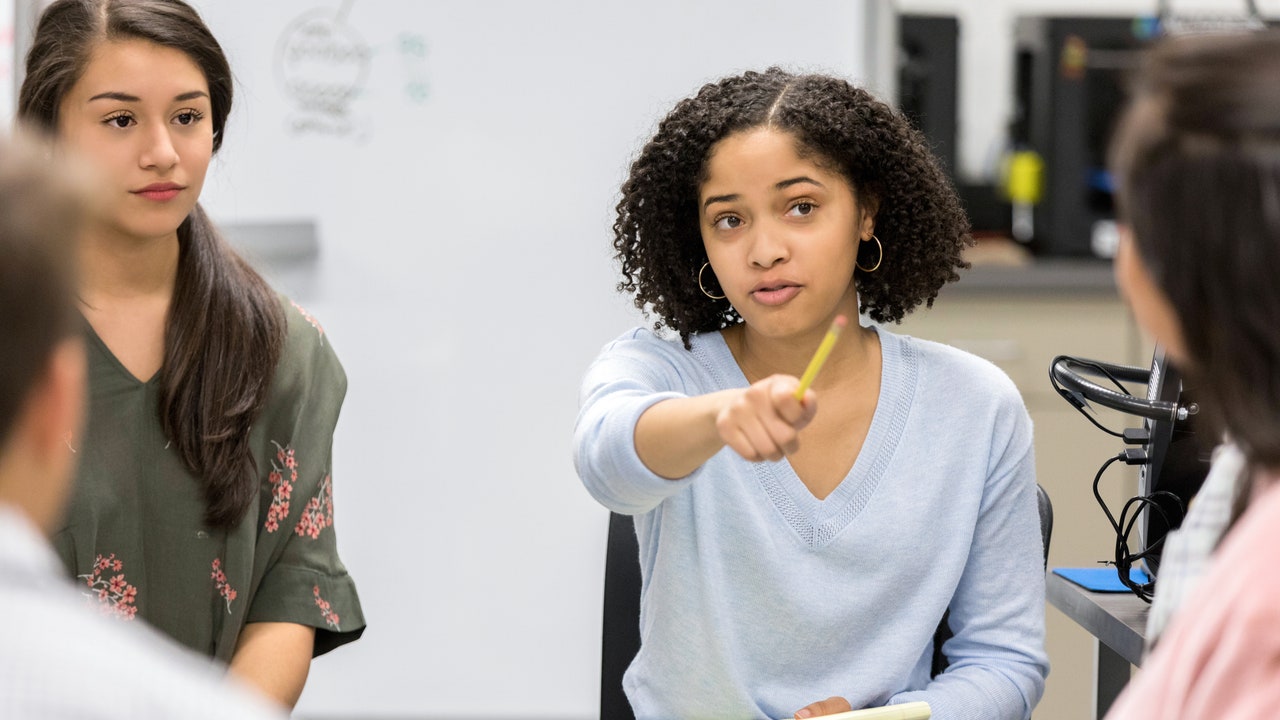To review this article, My Profile, then View Recorded Stories.
To review this article, select My Account, then View Stored Stories.
By teen Vogue staff
Anyone who pays attention to the major political occasions of recent years knows that black and Latino teenagers are leading movements. They march against gun violence and the lives of blacks, lead the crusade to get police out of schools and raise awareness of the risk posed by climate change.
But new studies from the nonprofit Girls Leadership indicate that a false impression of the self-perception and desires of these young women would possibly save them from thriving in those roles. More than a portion of the female population in the United States is not white, yet for too long, the girls’ study box has prioritized that of those who are white, cisgender, middle class.
The 2020 “Ready to Lead” report takes a closer look at how black and Latino students in the best schools understand themselves. The survey of 2,012 women over the age of 12 to 18, their parents and more than two hundred teachers found that respondents were willing to take on leadership roles. His main motivation: “helping others” by addressing major social upheavals such as guns and poverty.
Respondents indicated that assumptions and prejudices about leadership barriers for black and Latino women would possibly restrict their opportunities. Teachers said they believed women lacked confidence, while black women actually reported the highest levels of self-confidence for all respondents. The report found that black and Latino women want anti-racism and culturally appropriate learning environments to be truly prepared. They want the opinion of parents and mentors, especially instructors, who look like them. And they deserve not to be punished for talking about their ideals and opinions. More than a third of black instructors surveyed reported that colored academics had experienced prejudices in the form of lower instructor expectations, tougher field, and lack of opportunities to take on leadership roles.
As Monique W. Morris writes in the report’s foreword, “The barriers faced by women of color are basically related to their lack of closeness to adults who recognize this perspective and have the ability to shape and build it.
These are the key effects of Ready to Lead.
The report found that 48% of black women considered themselves leaders, compared to 36% of Latinas, 33% of multi-ethnic women, 31% of White women and 25% of Asian women. Girls of color are more likely to report that they are looking for leadership opportunities compared to white women.
For four0 percent of the black women surveyed agreed: “If I spoke brarockely or disagreed with a teacher, I’d be more likely to get in trouble than a woman of another race.” As the test authors point out, this is consistent with recent findings from other organizations such as Black Girls Matter and Girlhood Interrupted that black women are considered “noisy,” “aggressive, ” or “angry” when they protect their needs. or report allegations of discrimination, prejudice or “inequality” in schools.
More than one in three black and Latino women who earned the highest marks on the leadership scale reported witnessing racial bias. Nearly one in two black women surveyed said they had been treated unfairly because of their race through teachers and other school officials.
Eighty percent of black women and 63% of Latinas said it’s vital for them to have a style of role in their lives that comes from their very racial or ethnic background.
The survey found that women whose parents known as leaders were much more likely to identify themselves in this way. According to the survey, black and Latino parents reported the highest rates of leadership identity, and black and Latino women recognized their mothers as the main source of their own leadership aspirations.
The young man’s advisor to conquer (and save) the world. Teen Vogue covers celebrity news, politics, fashion, beauty, wellness, lifestyle and entertainment.
Learn more about Teen Vogue
Contact
© 2020 Condé Nast. All rights are reserved. Use of this site is an acceptance of our user agreement (updated 1/1/20) and the privacy policy and cookie statement (updated 1/1/20) and your privacy rights in California. Teen Vogue can earn a portion of the sales of products purchased on our site as a component of our component associations associated with retailers. The content on this site may not be reproduced, distributed, transmitted, cached or otherwise used, unless you have the prior written permission of Condé Nast. Ad selection

